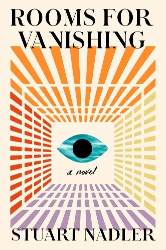In the year 2000, Daniel Silva introduced his character Gabriel Allon. The author’s spy thrillers featuring Allon propelled him to the New York Times best seller list nineteen times, and now again in his newest book, The Order.
What makes Allon so compelling? Like many great characters in historical fiction, he’s complex. Allon is an Israeli, the son of a Holocaust survivor who himself lost a son in a terrorist attack. He went on to join the Mossad — the Israeli Intelligence Agency — and developed into its most famous assassin. In Silva’s series, Allon’s career began when Prime Minister Golda Meir commanded him to seek revenge on the Palestinian terrorist group that murdered the eleven Israeli athletes competing at the 1972 Summer Olympics in Munich. Allon methodically killed all remaining terrorists involved in the planning and execution of the murders, and Silva paints a picture in which Allon is to be reviled for his violence, yet revered for his commitment to the Jewish state.
Silva delves into human emotion by creating a paradoxical hero: at once a warm father and husband, a gifted art restorer, and an intellectual fluent in five languages, who is also merciless in his pursuit of those who threaten Jews and Israel. The reader is forced, yet again, to consider the age-old question — does the end justify the means? By exploring the contradictions of Allon’s life, Silva investigates important themes: being Jewish, the value of Zionism, and the violence used in the name of sustaining the State of Israel.
Allon is never at peace. He is the unwilling agent called out of retirement again and again in defense of the Jewish state — eventually pushed up the ladder at the Mossad. In all of Silva’s books, as threats arise, Allon is called on to respond. The Order is no exception.
The novel begins with the death of Allon’s old friend — one whose life he has saved in the past — the Pope of the Roman Catholic Church. A tale unfolds of a radical and antisemitic group of clerics and their role in this time of crisis in the Vatican. In an attempt to explain why there are those in the church who still abhor the Jews, Silva weaves in a sub-plot that hangs on a passage from the Gospel of Matthew which lays the death of Jesus at the feet of the Jewish people: “his blood be on us and on our children.” This “blood curse” was accepted and in fact promulgated by the Jews at the time. The Jews of the modern day are still unable to wash away that stain.
The Order is an espionage novel, but the pace is agreeably slow, with brief periods of action and suspense. Silva is a captivating story teller. He draws you into the life of Gabriel Allon, a flawed, tragic, yet hopeful figure, who unflinchingly commits to his ideals while we are permitted to watch.
Samuel H. Selesnick, M.D., F.A.C.S. is Professor and Vice Chairman of the Department of Otolaryngology and Professor of Otolaryngology in Neurological Surgery at the Weill Cornell Medical College. He is the Editor-in-Chief of the global largest and oldest otolaryngology medical journal, The Laryngoscope.





